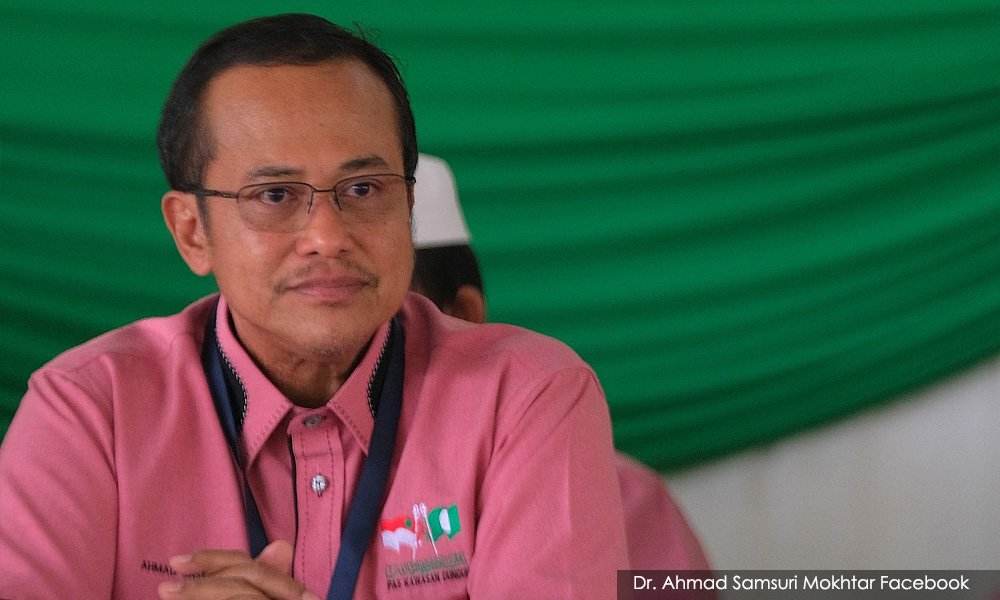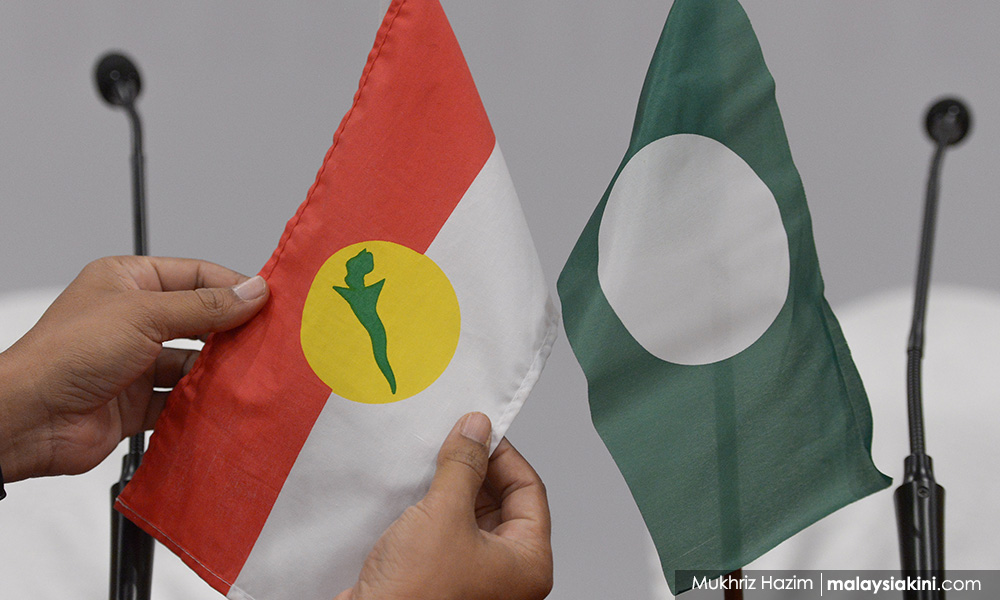Status quo PAS muktamar?
The results are in for the 67th PAS muktamar held in Kuala Terengganu over the past few days. They feature the return of incumbents in senior leadership positions and familiar seasoned faces in the party’s central leadership working committee.
This party election comes after a changing of the guard at the youth level with last week’s vote of a new crop of leaders.
With few obvious changes at the national level, it would seem as if things are the same in the Islamist party ruled by its president Abdul Hadi Awang.
The status quo politics of the party have less to do with the results, which point to internal differences, but the consistencies in how the party engages allies and holds onto an outdated conservative social policy agenda.
In understanding developments in PAS, it is useful to appreciate the broader shifts (and reversals) the party is making in its alliance relationships, branding and national policy orientation.
PAS’s recent muktamar points to a party torn in how to position itself in an increasingly competitive and complex political context, and one, through its adoption of even more exclusionary ethno-religious positions, is placing itself more on the margins at the height of its national power.
Endorsement of Hadi?
On the surface, the muktamar results showcase the dominance of party president Hadi, whose position has been secure since the split in the party of 2015 that led to the formation of Amanah.
It has been Hadi’s way or the highway on most key policy decisions, with the party president leading PAS first into coalition with UMNO and then Perikatan Nasional since 2018.
Hadi’s closed outlook on engagement with non-Muslims and religious tolerance has reinforced the party’s commitment to conservative hardened positions, imposing religious legal restrictions on his fellow Muslims and underscoring his political alliances with any party that will allow him to further this agenda.
Not surprising, given his power, his son Muhammad Khalil Abdul Hadi won the highest number of votes (884) for the working leadership committee, and most of those elected remain fully loyal to Hadi, unwilling to openly criticise him.
Notably, those who have been more quietly critical of Hadi – such as Kelantan’s Nik Mohamad Abduh Nik Abdul Aziz (son of former spiritual leader Nik Abdul Aziz Nik Mat), and controversial former plantation industries and commodities minister Mohd Khairuddin Aman Razali (Takiri) were not elected.
The results confirm Hadi’s personal control of the party.

Discontent with Hadi was, however, expressed indirectly when Terengganu MB Ahmad Samsuri Mokhtar received the lowest votes among the vice-presidential contenders in his home state.
Samsuri is seen as the strongest advocate for an alliance with Perikatan Nasional and was seen to advocate for PAS to forego its logo in the coming Malacca polls.
This decision supposedly reversed a deal secured with Umno offering the party representation in a Malacca government if Umno/BN was able to win a victory, a decision that many within the party supported, not least for the fact that the party would have used its own logo in the campaign.
Samsuri also continues to face disgruntlement within PAS Terengganu, as state and national factors contributed to his comparatively lower number of votes (778) compared to the other two VP contenders.
He was, however, able to easily offset the challenge by Mohd Zuhdi Marzuki (623 votes), whose push for a ‘green tsunami’ has spearheaded the exclusionary anti-non-Muslim drive of the party in recent years.
Samsuri’s standing in the party contrasts well to that of lacklustre and underperforming Kedah MB Muhammad Sanusi Md Nor, who pulled out of the vice-president race but managed to safely secure a position in the central working committee (877 votes).
Expanding representation
The focus on leadership obscures other important patterns in the muktamar's results.
PAS elected four women to its working leadership committee – Halimah Ali, Najihatussalehah Ahmad, Women and Deputy Minister of Women, Family and Community Development Siti Zailah Mohd Yusof and Rosni Adam.
This speaks to a growing recognition within the party of the need for support of women, an area the party has been traditionally weak.
There were victories from states outside of the traditional party base, such as appointed PAS state government representative Ali Akbar Gulasan from Sabah.
While from the outside, the party hierarchy may appear similarly ideologically aligned, the results show significant variation within PAS itself, with ustaz, professionals and businesspersons elected and those with comparatively more relatively progressive views than others.
As the party has expanded, so has the need to accommodate the variation within the Malay community.
Inevitably this desire to expand, to become a more representative national party, has led to tensions within the party itself.
The party is wrestling with how to position itself, to move beyond the rural Malay heartland of Kelantan, Kedah and Terengganu.
This is evident in differences over important recent decisions.
Under PN cover
PAS struggles over how to win more electoral support. In yet another turn in its alliance relationships which have extended across the political spectrum from DAP to Umno in the past decade, PAS leadership recently decided to separate from its traditional electoral foe but recent friend Umno and ally with PN in Malacca polls.
It furthermore decided to give up the party logo in the campaign – a decision reminiscent of 1978, which resulted in voter punishment of the party for nearly a decade.

Severing ties with Umno comes at a time when the party has increasingly been seen to adopt the trappings of Umno, with more blatant displays of wealth by some PAS leaders and, importantly, the prioritisation of holding onto power and distributing patronage.
Ironically as the party has ‘Umnonised’ – taking with it large shares of the stalwart party’s support in GE14 – it has decided to step away from the main party Umno in the ‘all-Malay’ alliance that brought it into national government in 2020.
By favouring PN over Umno, it hopes to win over new voters in Malacca, believing that separation from Umno will serve the party long term and fantasising that PN will offer them inroads into non-Malay support.
This move comes with real risks. In joining Umno’s electoral ‘enemy’ Bersatu, it has drawn the battle lines for GE15 in Kelantan, Terengganu and Kedah, putting PAS governments in the latter two states, especially in jeopardy.
Part of this decision is personal, showing loyalty to former PM and Bersatu president Muhyiddin Yassin and PN for giving them positions of power at the national level in 2020.
Another part of this is PAS’s strategic choice to be the dominant player in an alliance, as would be the case in PN given the party’s stronger grassroots compared to Bersatu rather than secondary in an alliance with Umno.
Many within PAS, especially the rank and file, preferred maintaining ties with Umno and feel the party has undermined its electoral fortunes by going with an alliance partner that is no longer holding the prime minister position.
Those differing with the leadership’s Malacca decisions hold that a partnership with PN likely offers the party little long-term.
On the narrow
PAS faces bigger problems than its electoral partner. The party leaders’ open disparagement of non-Muslims has alienated (and offended) them.
Of all the Malay parties despised by the majority of non-Muslim voters, PAS now arguably tops the list.
Many feel the party betrayed their support when they left the Pakatan Rakyat alliance.
Others are responding to the racist-religious rhetoric of the party in recent years, as hate begets hate.

Yet others see foolishness in rabble-rousing rhetoric over whiskey labels such as Timah (internationally embarrassing Malaysia).
As PAS has assumed greater national power, there has been an unwillingness by party leaders to recognise Malaysia’s national diversity.
Electorally the party has closed off outreach across communities and is locked in a Malay-only battle for votes. The Malacca polls forced them to choose a partner, but the choice to take a more closed path was made earlier.
As the party leaders have benefitted from the spoils of national power, holding ministerial positions, PAS has lost its comparative advantage in moral legitimacy, even among some of the party faithful.
Economic enrichment and displays of power have been prioritised over empowerment and frugality. For many, PAS has replaced Umno as the focal point for anger, not helped by the underperformance of the party’s ministers in government since 2020.
PAS is additionally holding onto policy prescriptions and a conservative religious agenda that is not in line with broader global trends in political Islam.
Countries such as Saudi Arabia and the United Arab Emirates are liberalising socially, opening up space for women and increasing tolerance.
They have a long way to go toward genuine rights, but their trajectory is starkly different from that of PAS which continues to hold onto old intolerant conservative policies of the past.
Indonesia under Jokowi has also taken on more tolerant positions.
PAS conceptualisation of political Islam rests on legal strictures, punishment for supposed infractions, rather than tolerance.
The party holds onto policies of the past rather than recognising the changes taking place in political Islam globally and failing to appreciate that in this social media age, the young are increasingly looking away from the party as a leader in political Islam.
So, as the results reinforce Hadi, and he takes the party into a no logo election in yet another partnership for political gain for his circumscribed agenda, PAS is responding to the changes of the new political context.
However, it is doing so in a way that reflects its conflicted practices of the past, in which it leaves its stronger, more open allies behind and turns to those that are more in line with its leadership’s vision to impose its narrow ideological view of political Islam.
In this regard, the PAS status quo remains. - Mkini
BRIDGET WELSH is a senior research associate at the Hu Fu Centre for East Asia Democratic Studies and a senior associate fellow of The Habibie Centre. She currently is an honorary research associate of the University of Nottingham, Malaysia's Asia Research Institute (Unari) based in Kuala Lumpur. She tweets at @dririshsea.
The views expressed here are those of the author/contributor and do not necessarily represent the views of MMKtT.
✍ Credit given to the original owner of this post : ☕ Malaysians Must Know the TRUTH
🌐 Hit This Link To Find Out More On Their Articles...🏄🏻♀️ Enjoy Surfing!




















Post a Comment